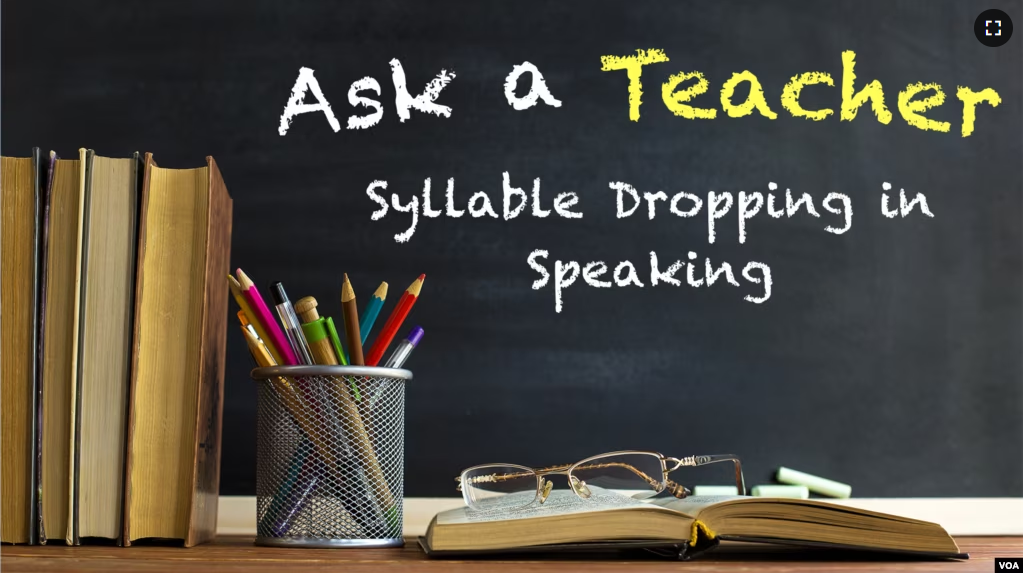Hello! This week on Ask a Teacher, we will answer a question about syllable dropping in American English pronunciation.
Question:
Hi, VOA Learning English,
I’m Herbert from Germany.
Throughout my whole life speaking English, I did not realize that some vowels in words are “swallowed,” like in the words “vegetable,” “family” and “difference.”
Could you give a lecture on this topic?
Thanks a lot,
Herbert
Answer
Hi Herbert,
This is an interesting question! Or is it interesting? Now you have us thinking! We do not “swallow” the vowels. That would be a little strange, but it creates a great image!
So, why does it happen in English?
Syllables and vowels
First, let’s talk about syllables and vowels.
A syllable is part of a word that contains one vowel sound. For example, “cat” is a one-syllable word that contains one vowel sound. And “swallow”, with two vowel sounds, has two syllables –swa(l) and -lo.

Stress and unstressed vowels
Every word in English has one stressed syllable. This is called word stress. The stressed syllable is longer, louder and clearer than the other syllables. The unstressed syllables then become shorter, softer, and less clear.
Now, let’s look at the word “family” with its three vowels of a, i and y. The stress is on the first syllable -fam. Over time the vowel i relaxes so much that we dropped the whole syllable and turned it into -fam-ly.
We say some of these words so often that we skip over the less important, unstressed vowels. As you said, “vegetable” becomes vej-tə-bəl and “difference” becomes di-f(ə-)rən(t)s.
Let’s look at a few more examples of words that lose unstressed vowels.
“Business” is pronounced with two syllables, biz-nəs, instead of three. The i vowel sound is dropped. You do not want to pronounce it bi-ze-nəs. That is another three-syllable word “busyness.”
“Evening” is pronounced with two syllables instead of three – ev-ning not e-ven-ing. And lastly, we have “Wednesday,” the third day of the work week as wenz-day not wed-nes-day.

Speaking like a native
You can speak fast like a native speaker of American English by dropping syllables. But remember to center more on the stressed vowel, rather than the dropping of the unstressed one.
In this exercise, I will pronounce all the syllables first, then drop the unstressed vowel.
Family (3)
Family (2)
Difference (3)
Difference (2)
Vegetable (4)
Vegetable (3)
Please let us know if these explanations and examples have helped you, Herbert!
What question do you have about American English? Send us an email at learningenglish@voanews.com.
And that’s Ask a Teacher.
I’m Faith Pirlo.
Faith Pirlo wrote this lesson for VOA Learning English.
___________________________________________________________________
Words in This Story
vowel – n. a speech sound made with your mouth open and your tongue in the middle of your mouth not touching your teeth, lips, etc.
lecture – n. a talk or presentation by a professor or teacher
pronunciation –n. the sound of the way a word is said
stress – adj. something that is stressed is louder or in a higher pitch when speaking
relaxed – adj. not tense or stressed
